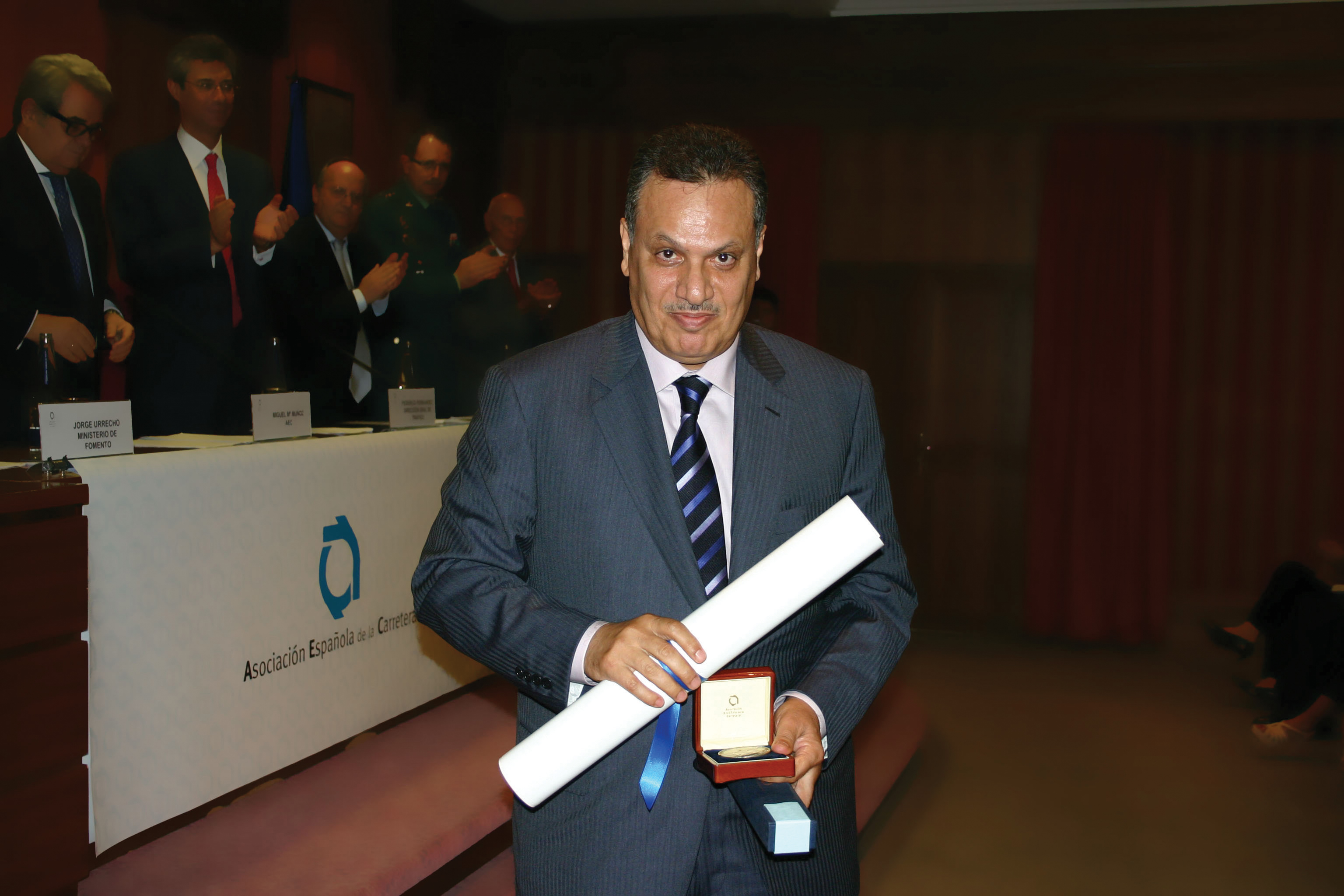The IRF and ABCR spoke with World Highways about the upcoming 7th Brazilian Congress on Highways and Concessions event

Gil Guedes (left) of the ABCR and Moacyr Duarte (right) are major figures in the Brazilian construction sector
The IRF and ABCR spoke with World Highways about the upcoming 7th Brazilian Congress on Highways and Concessions event
Today, Brazil is one of the most dynamic economies in the world. International interest in Brazil has increased immensely after its winning bids to host the 2014Eng Abdullah A Al-Mogbel, Deputy Minister of Roads of the Kingdom of Saudi Arabia, and recently elected chairman of IRF Washington added, "The partnership between ABCR and IRF highlights my vision and primary objective for IRF during my term as chairman." Eng Al-Mogbel continued, "As a global organisation established 63 years ago, IRF is a leader in the transfer of latest technologies and best practices worldwide. Through the establishment of meaningful partnerships with organisations like ABCR, these alliances, both on a regional and global perspective, will allow IRF and its members to effect change with a positive impact on road users and society."
To further its aims, IRF's Washington Program Center has signed a key co-operation agreement with the Brazilian road industry body ABCR. Sankey said, "Unlike any other international road organisation, IRF has had a truly global vision from inception in 1948. In fact, through the entire latter half of the twentieth century we always had a continuous significant presence in Latin America and Brazil, but unfortunately our presence declined a bit in the last decade. This was a great concern to our previous chairman, Brian Harris, who directed us to reach out to the region and identify ways to help its governments and industry.
More recently, our board of directors led by engineer Abdullah A Al-Mogbel, Deputy Minister of Roads of the Kingdom of Saudi Arabia, has entrusted us to expand our commitment to Latin America. Due to our long presence in the region, we have extraordinarily good relationships with road associations in some countries, especially Argentina, Peru and, of course, Brazil. We hope this new agreement with ABCR, Brazil's most prominent road industry association, will make a solid relationship even stronger." Gil Guedes is technical co-ordinator of ABCR and said, "For us it is a very interesting partnership. We have been members of the IRF for several years and have been to several of their events in Europe and South America, and we believe that the IRF and its partners provide a global expert network in areas of mutual interest, such as pavements and materials, intelligent transport systems, and road safety. We hope that the participation of the IRF at this Congress will be the first of many joint initiatives." The IRF is playing an important role in the upcoming BRASVIAS CBR&C 2011 event and Sankey said, "The partnership between IRF and ABCR is very important for many reasons. This joint event will be the first of many activities organised in association with ABCR. In keeping with our overall mission, this partnership will allow members of the IRF to participate in the growing market of surface transport in Brazil, and in return, the Brazilian organisations will be able to showcase their achievements to a global audience. By partnering with regional organisations such as ABCR and holding joint events, we are providing added value, consolidating (through co-location) industry events, and expanding the focus of the technical content of our activities to meet the diverse needs of our global membership. Also critically, we are fulfilling our educational mission, to bring best practices and transfer knowledge, to one of the most important countries in the world.
Guedes continued, "The IRF's participation in the CBR&C 2011 will also bring high level speakers from IRF's membership and network, particularly during the third day of the event. We are naming that day of the program 'IRF Brazil'. In addition, we are bringing a greater number of international companies that specialise in equipment and services to make up this new edition of Exhibition Fair, BRASVIAS 2011. Immediately after the conclusion of CBR&C 2011, the IRF will teach four executive certificate courses which, while not directly linked to CBR&C 2011, are another feature of our programme. Our expectation is that this partnership will open new horizons for technicians, managers and operators of roads and road concessions, in Brazil and other Latin American countries." Sankey explained, "The 7th Brazilian Congress of Highways and Concessions (CBR&C) is the best-established highway industry event in Brazil, drawing on the great success of one of the most successful concession programs in the world over the last two decades. This will be an extensive and multi-disciplinary programme, consisting of three days of executive and technical sessions, the BRASVIAS Exhibition, and finally two days of IRF certified Training Courses." An array of topics will be presented at the IRF Conference in Brazil and Sankey said, "The program will run in conjunction with the Congress and will consist of executive and technical sessions.
Pavements and pavement technologies will be one of the major topics covered by the IRF Conference in Brazil on the third day of the overall event. The conference will examine pavements from multiple perspectives including technology, innovation, management, and sustainability. It will also address conservation and management of highways globally. The road safety and ITS sessions will have a focus on standards and their development and also on technology and innovation. In addition, Congress participants will be introduced to several outstanding projects related to highways and toll roads that have received IRF's Global Road Achievement Awards (GRAA), which demonstrate excellence and innovation in road development.
Free-flow tolling is a key subject for the highway sector at present and Sankey continued, "Because Brazil has been a leader in the actual deployment of tolling as an enabling technology to fund its privatised concessions, it is logical to expect that its industry and government leaders will drive advances and future deployment of free-flow technologies in Brazil.
Guedes added, "There is no doubt that the highways operating under 'free-flow' are the ones with the best conditions for drivers. We have two important aspects to consider. The first concerns the fact that most of our highways have numerous entrances and exits, which would require the installation of signs at all these points, making the process not economically viable and complicating its operation. The second aspect has to do with evasion, because concessionaires are not presently intended to prevent the movement of vehicles without electronic equipment on board. Notwithstanding the scheduled presentations and discussions in 2011, CBR&C will try to find solutions that are suited to our habits and needs." Training is another key issue for the industry and Sankey said, "Our instructors are recognised as leading experts in their fields and IRF's training courses are recognised by the majority of engineering societies worldwide. In addition, the IRF participates in the Continuing Education Programme in the US. These certificates are accepted in the US and worldwide." The four IRF training courses will be on the following subjects: Pavement Management, Road Asset Management and Maintenance, Roadside Safety Applications and NTCIP Communications for ITS Protocol.








